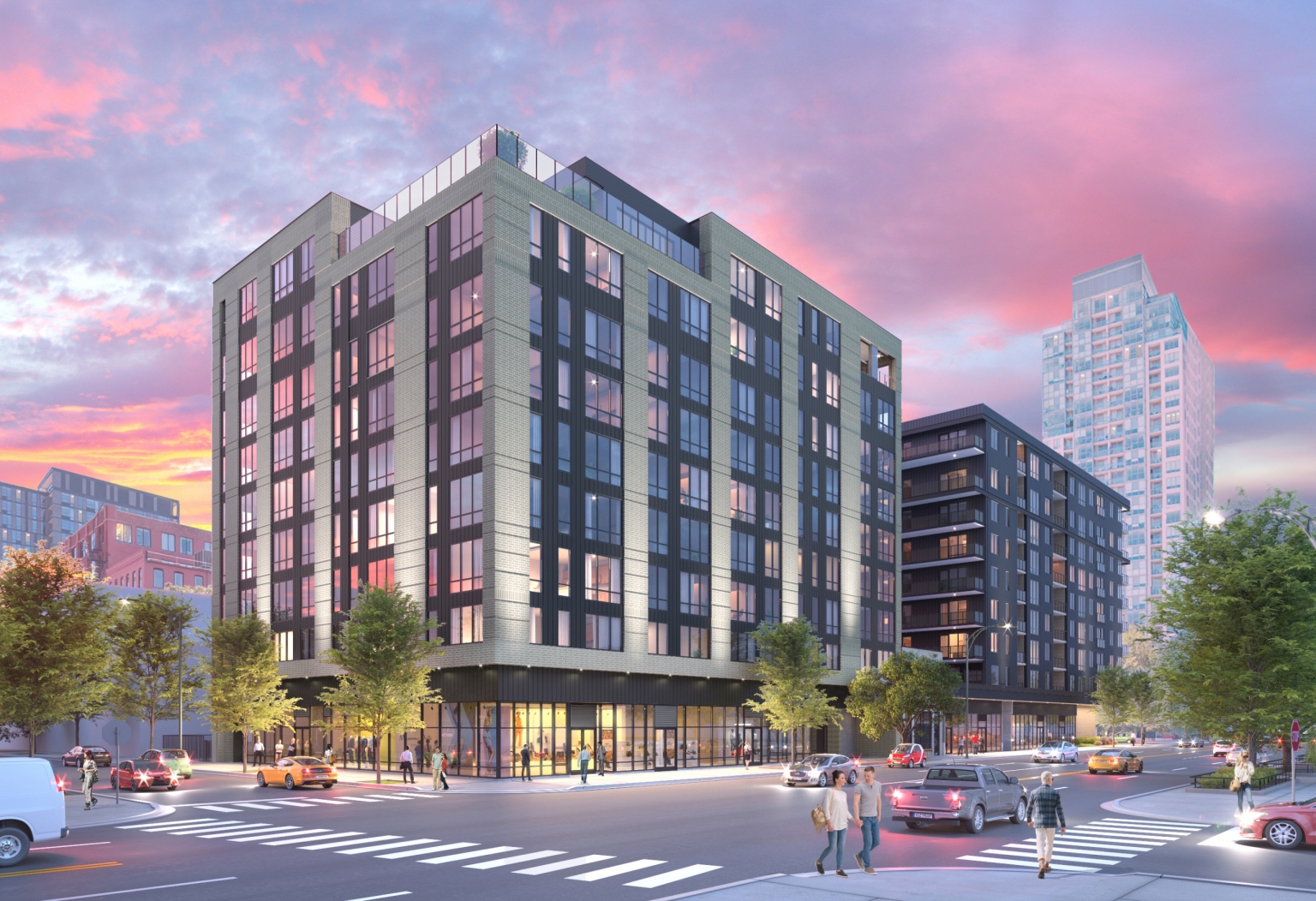LG Development Group began planning a two-tower apartment development during the pandemic and broke ground amid concerns about rising interest rates and inflation. By pursuing a rarely used type of financing for urban apartment projects, the Chicago firm locked in a uniquely long-term loan with an interest rate set to remain below 3%.
The project: Construction began early this year on Hugo, an apartment development in Chicago’s River North neighborhood. Chicago-based LG is putting up neighboring nine-story buildings at 751 N. Hudson Ave. and 411 W. Chicago Ave., which will have a combined 227 units. The transit-oriented development will have 18,867 square feet of ground-floor retail. The project, designed by architecture firm NORR, is expected to be completed in the third quarter of 2023.

The brokers: Walker & Dunlop’s Jeff Robbins, Matt Ewig and Chris Rumul helped the developer secure financing through the U.S. Department of Housing and Urban Development.
The loan: The loan, finalized in November, is for $74.99 million. The 40-year loan was one of the largest Section 211(d)(4) deals financed by HUD in 2021, according to Walker & Dunlop. HUD financing is rarely used to fund urban apartment towers, and loans typically are between $10 million and $50 million, Rumul said. The larger loan size and the fact that HUD financing is rarely used for urban multifamily projects with market-rate rents make Hugo a “unicorn project,” he said.
Challenges: There were two major obstacles to financing. LG began planning the project during some of the worst months of COVID-19, when high-rise residents were moving out, leaving landlords with high vacancy rates and falling rents. Banks were closely scrutinizing requests for loans on residential developments. Later, as the spread of the virus slowed and renters returned, concerns shifted to anticipated rises in interest rates, which are expected to make real estate deals costlier.
Better terms: One of the reasons many developers shy away from HUD debt is the complexities of the process and the potentially yearlong process for approval, Rumul said. In this case, the lender and developer opted to continue through the approval process despite concerns about the effects of the health crisis, allowing the developer time to complete zoning approvals while both sides closely monitored the economy. As circumstances improved, the payoff was a lower-interest loan with greater leverage and a far longer term than LG would have gotten through traditional lenders, Rumul said.
Why it matters: The financing starts off as a two-year construction loan before converting to a 40-year, fixed-rate loan, all at 2.87% interest. HUD loans also include a mortgage insurance premium, but that fee is kept to the minimum of 0.25% annually if LG designs the buildings to meet required energy efficiency standards. Even with the fee, the interest rate is well below today’s interest rates, which are approaching 4% and expected to continue rising, Rumul said.
What they’re saying: “In this rising rate environment, we’re thankful we were able to lock in that rate,” said Rumul, a senior managing director. “Having the rate locked in for the next 40 years, it’s a tremendous inflation hedge.”
Fun fact: Hugo is LG’s first development funded by a HUD loan.
CoStar’s Impact Awards highlight the commercial real estate transactions and projects that have transformed their markets over the past year. The winners are chosen by independent panels of industry professionals who work in the markets they judge. A list of judges can be found here and the criteria for selecting winners can be found here.
